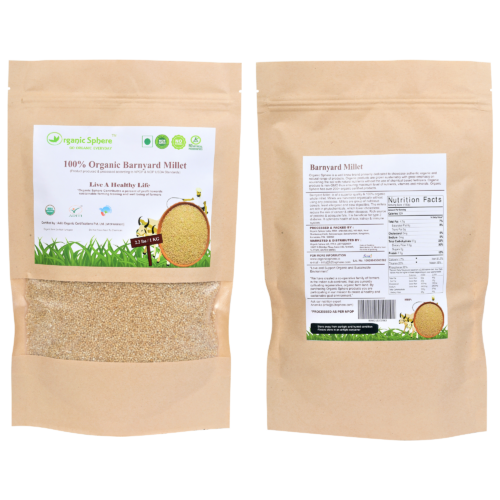-
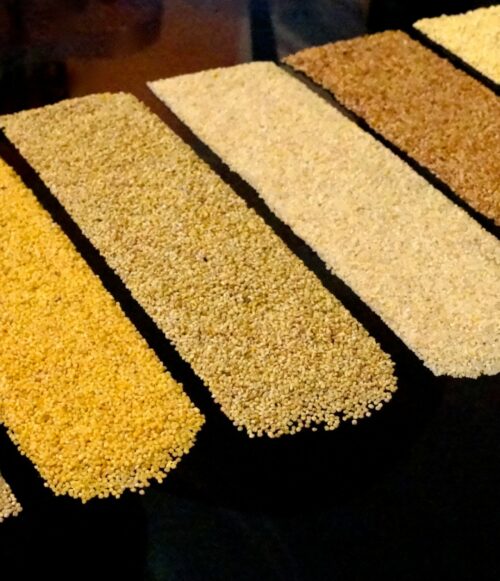
-
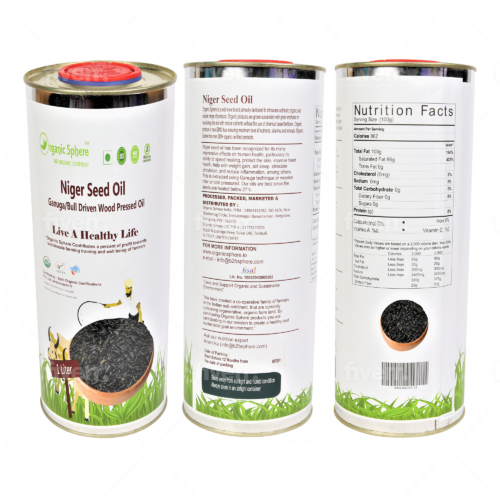
-
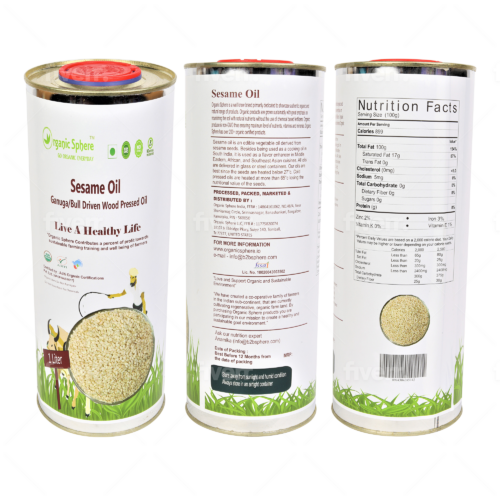
-
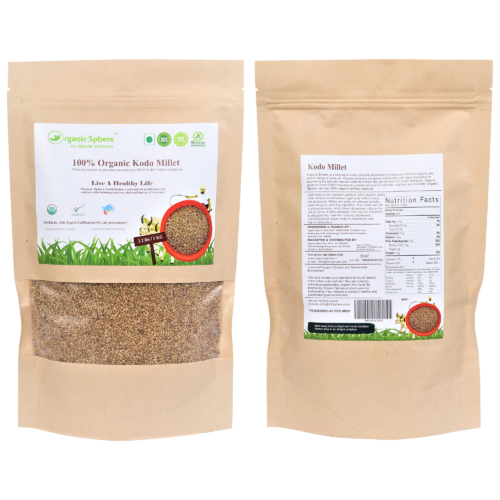 Kodo millet (Paspalum scrobiculatum) is an indigenous cereal or millet in varied tropical regions. Kodo can be cultivated in extreme dry and drought lands and stony soils as well as saline lands. It is also known as kodra, varagu, arikelu, harka, and kodoa. Kodo or varagu is a popular fast or upvas food in some parts of India. The millet is definitely superior to rice, gluten free and rich in fibre, vitamins and minerals. All millets are Organic and cultivated through sustainable farming means. No chemicals or pesticides are used in these millets. These are Unpolished millet.
Kodo millet (Paspalum scrobiculatum) is an indigenous cereal or millet in varied tropical regions. Kodo can be cultivated in extreme dry and drought lands and stony soils as well as saline lands. It is also known as kodra, varagu, arikelu, harka, and kodoa. Kodo or varagu is a popular fast or upvas food in some parts of India. The millet is definitely superior to rice, gluten free and rich in fibre, vitamins and minerals. All millets are Organic and cultivated through sustainable farming means. No chemicals or pesticides are used in these millets. These are Unpolished millet. -
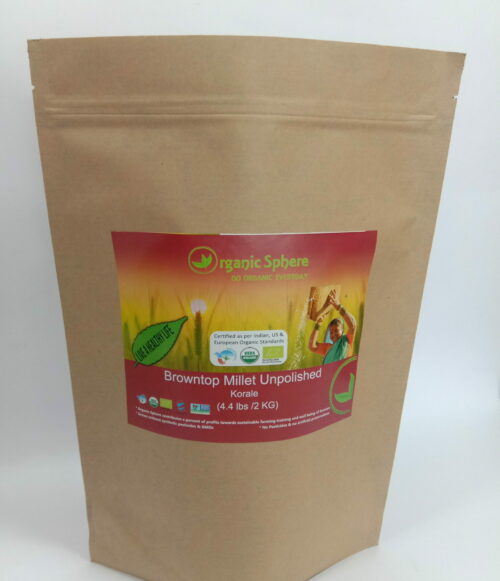
-
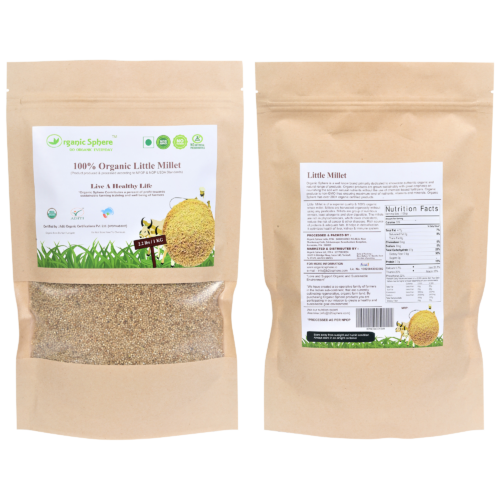 All millets are Organic and cultivated through sustainable farming means. No chemicals or pesticides are used in these millets. These are Unpolished millet. The little millet may be called little but in no means its nutritional content is little. It is a rich source of B-vitamins, minerals like calcium, iron, zinc, potassium among others. It also provides essential fats to the body, the kind that helps in weight loss. Its high fiber content is yet another positive making it an ideal part of Pongal or even kheer instead of rice.
All millets are Organic and cultivated through sustainable farming means. No chemicals or pesticides are used in these millets. These are Unpolished millet. The little millet may be called little but in no means its nutritional content is little. It is a rich source of B-vitamins, minerals like calcium, iron, zinc, potassium among others. It also provides essential fats to the body, the kind that helps in weight loss. Its high fiber content is yet another positive making it an ideal part of Pongal or even kheer instead of rice. -
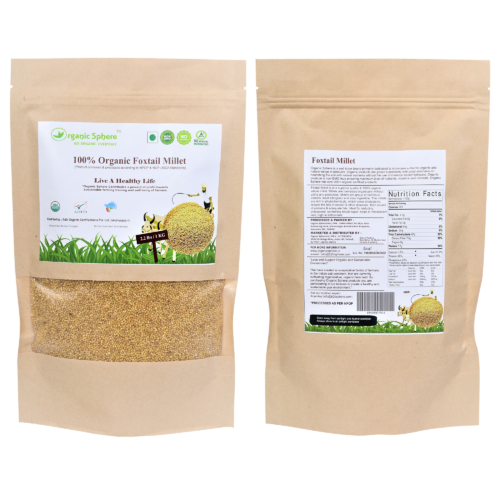 Foxtail millets are available in the form of rice, semolina (like rava) or as flour. As with other millets, foxtail millet is rich in smart carbohydrates, the kind which doesn’t increase the blood sugar levels immediately. All millets are Organic and cultivated through sustainable farming means. No chemicals or pesticides are used in these millets. These are Unpolished millet. It is rich in dietary fiber, and minerals like iron and copper. Due to this, it helps to reduce the levels of bad cholesterol and keeps the immune system strong. Setaria italic with many common names including Chinese Millet, Foxtail Bristle Grass, Dwarf Setaria, Foxtail Millet, Hay Millet, German Millet, Giant Setaria Hungarian Millet, Japanese Millet, Italian Millet, Red Rala, Liberty Millet and Hungarian millet is a grass species which is used as a crop. Foxtail millet is adapted to well-drained soils. Foxtail millet is an annual grass whose plants reach an average height of 60-150 cm. The seeds are convex oval or elliptical and light yellow to brown, rusty or black in color. It is known as Bertia in Hindi; Panico Degli Uccelli in Italian; Awa in Japanese; Sekui in Malaysia; Pabbio Coltivato in Switzerland; dzo in Korean; Morap in Russian and Mijo De Italia in Spanish.
Foxtail millets are available in the form of rice, semolina (like rava) or as flour. As with other millets, foxtail millet is rich in smart carbohydrates, the kind which doesn’t increase the blood sugar levels immediately. All millets are Organic and cultivated through sustainable farming means. No chemicals or pesticides are used in these millets. These are Unpolished millet. It is rich in dietary fiber, and minerals like iron and copper. Due to this, it helps to reduce the levels of bad cholesterol and keeps the immune system strong. Setaria italic with many common names including Chinese Millet, Foxtail Bristle Grass, Dwarf Setaria, Foxtail Millet, Hay Millet, German Millet, Giant Setaria Hungarian Millet, Japanese Millet, Italian Millet, Red Rala, Liberty Millet and Hungarian millet is a grass species which is used as a crop. Foxtail millet is adapted to well-drained soils. Foxtail millet is an annual grass whose plants reach an average height of 60-150 cm. The seeds are convex oval or elliptical and light yellow to brown, rusty or black in color. It is known as Bertia in Hindi; Panico Degli Uccelli in Italian; Awa in Japanese; Sekui in Malaysia; Pabbio Coltivato in Switzerland; dzo in Korean; Morap in Russian and Mijo De Italia in Spanish. -
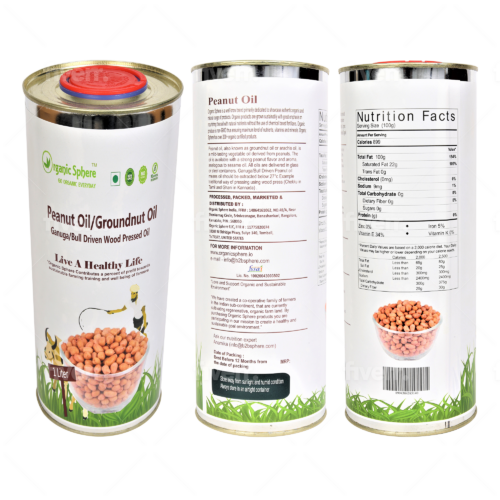 Peanut oil, also known as groundnut oil or arachis oil, is a mild-tasting vegetable oil derived from peanuts. The oil is available with a strong peanut flavor and aroma, analogous to sesame oil. Peanut oil has a smoke point of 320 °F/160 °C.
Peanut oil, also known as groundnut oil or arachis oil, is a mild-tasting vegetable oil derived from peanuts. The oil is available with a strong peanut flavor and aroma, analogous to sesame oil. Peanut oil has a smoke point of 320 °F/160 °C.




